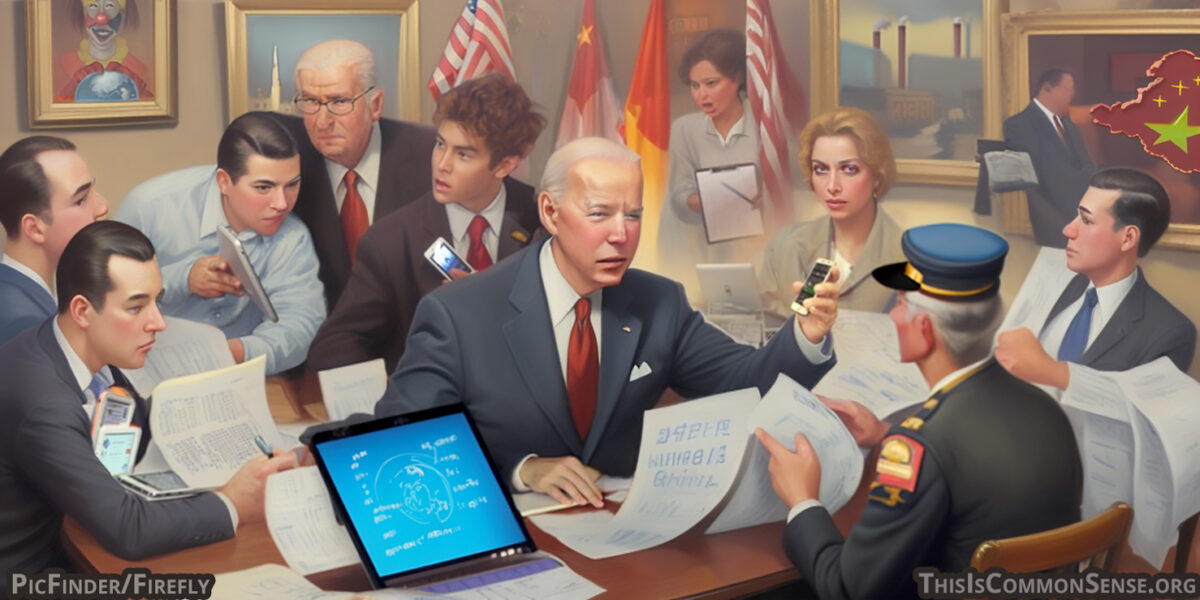Propaganda is a funny business. It is not just rhetoric, the art of persuasive speech and writing. It is a mass media affair attempting to influence mass opinion.
We just witnessed the latest variant from the Democrats and major media (but, as the joke goes, we repeat ourselves). The term the propagandists fixated upon was “weird.”
For a week, we heard it everywhere. “Republicans are weird.” “J. D. Vance’s speech was weird.” “They’re just plain weird.”
But social media being what it is, the mass media campaign to characterize the Democrats’ opponents as “weird” was noticed and instantly mocked in multiple venues.
Conservative podcaster Matt Walsh offered his 1412th episode, “Weird Democrats Think The Nuclear Family Is Weird,” making the most common point: folks who advance the outré in sex and culture have no business calling other people weird. Walsh also focuses in on Senator Manchin’s participation in viral talking point, noting that Machin is calling weird Vance’s discussion of the collapse of the family in America. Manchin’s belittling of this topic as “weird” is not even plausible: of course the topic is worth discussing! “This is what it looks like when a talking point unravels.”
Kat Tenbarge covered this yesterday in “Democrats made ‘weird’ an effective weapon, and then Republicans turned it on LGBTQ people,” which the publisher NBC blurbed “‘Weird’ has quickly become one of the most effective political attacks on the internet.” The reader can judge whether “weird” was indeed, an effective, rather than defective, attack.
The use of “weird” by Democrats appears to have come from a July 23 appearance by Gov. Tim Walz of Minnesota on MSNBC’s “Morning Joe.”
“We do not like what has happened, when you can’t even go to Thanksgiving dinner with your uncle because you end up in some weird fight that is unnecessary,” Walz, who is in contention to be Harris’ vice presidential pick, said. “Well, it’s true. These guys are just weird.”
The quote was sandwiched in between criticisms of former President Donald Trump and his vice presidential nominee JD Vance, who Walz asserted knows “nothing” about “small-town America.” Walz’s criticism hinged on the right’s focus on culture wars, including its negative characterizations of women without children, its book-banning efforts and sowing division.
The idea that this spread in a normal viral fashion is probably a stretch though. Memos go out. Ideas are pushed and talking heads on TV are given orders. They have been caught many times, and comedian Dave Smith, in his commentary on the “weird” meme, discussed his own experience catching left-liberal Democrat commentators and how the biz word — and why they readily conform to the narrowcast of talking point memos.
To innocents who expect people to speak their own minds, the idea of a mass propaganda campaign may be … too weird to accept. “Psychological operations” do not happen. This is just the free flow of ideas!
Well, some ideas just freely flow. But many of the most seemingly viral are indeed coordinated campaigns. And “weird” was (most likely) one.
It probably did not win, though. It was merely the word of the week. Another desperate and mostly ineffective attempt to influence mass opinion.
Or so we can hope.









